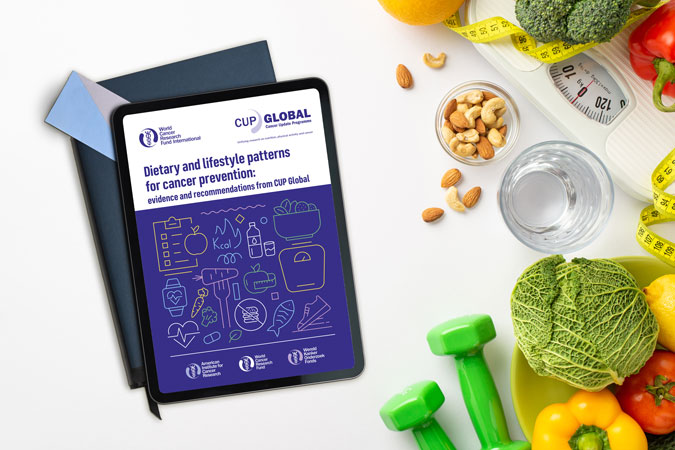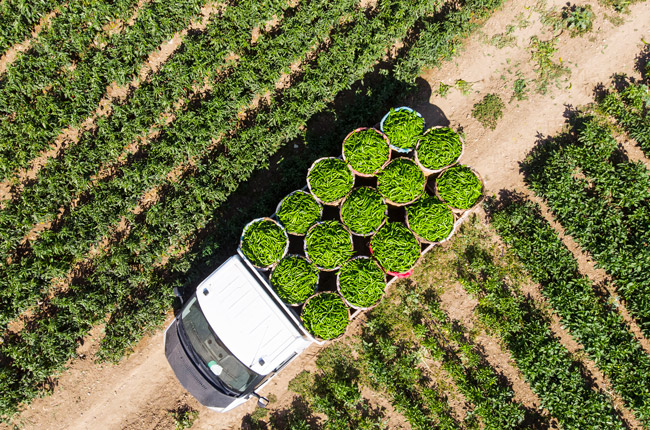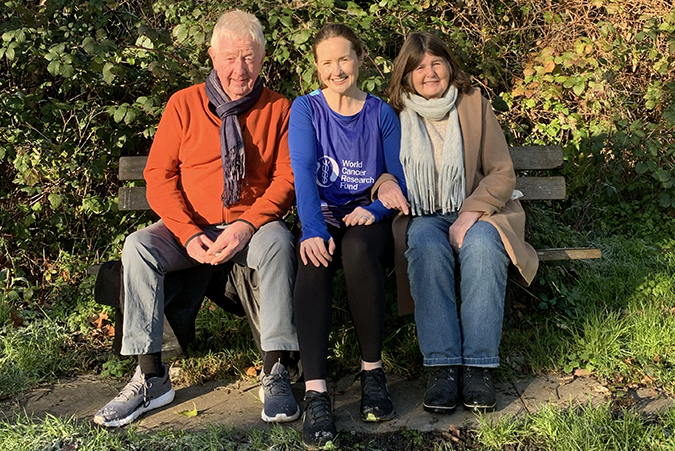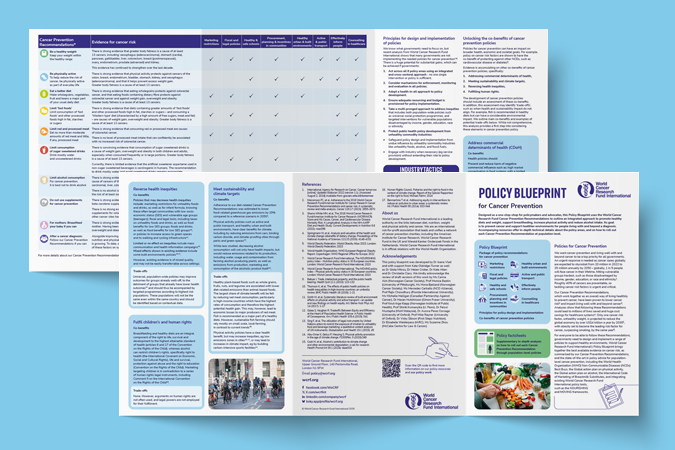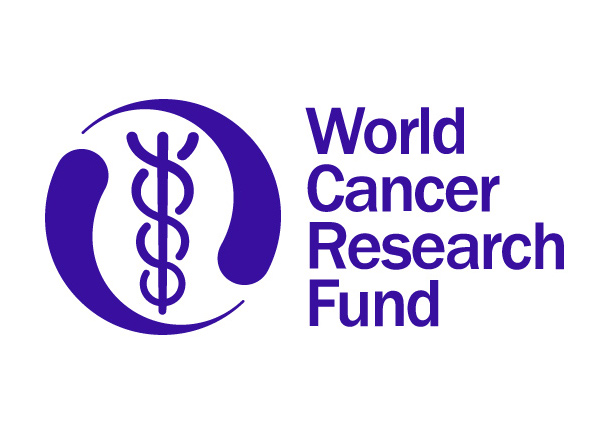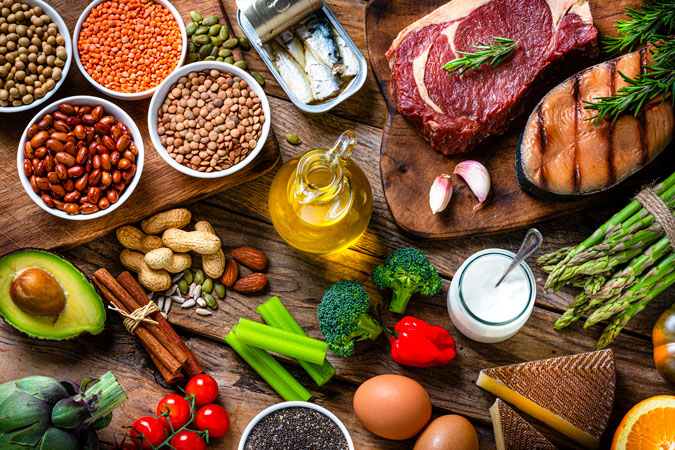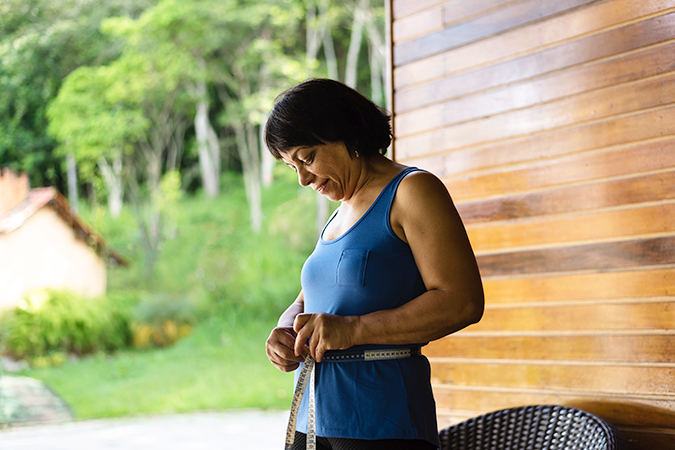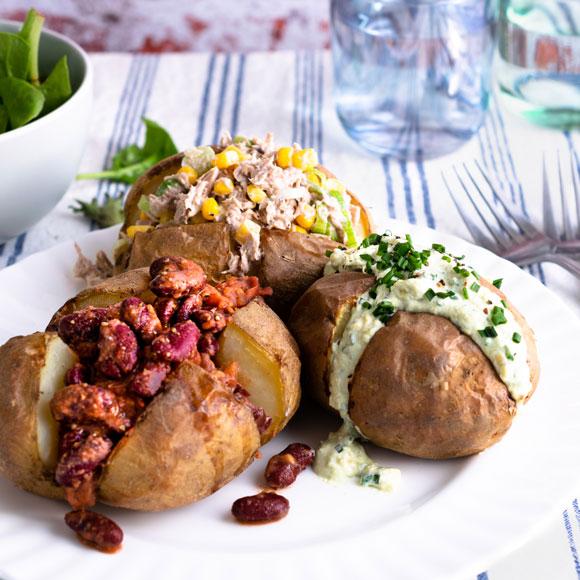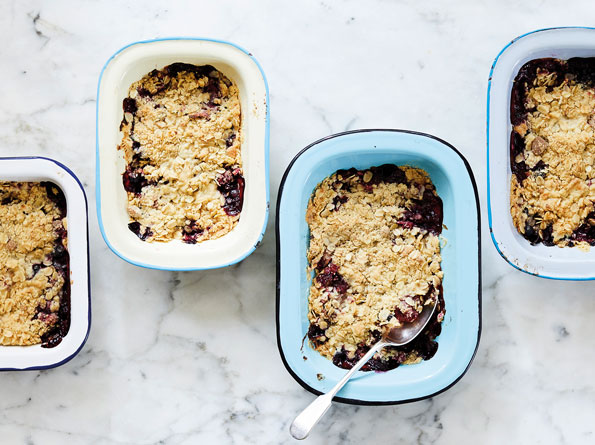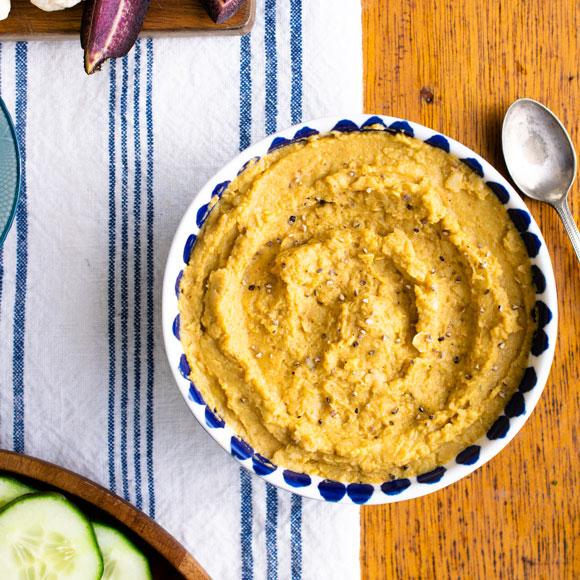- Report provides further clarity on dietary and lifestyle pattern (DLP) recommendations for breast and colorectal cancer prevention following a comprehensive review of 170 global studies
- Adopting a healthy DLP could also have important environmental and societal benefits, say report authors, and more can be done by policymakers to support adopting a healthy, cancer preventative DLP adoption globally
World Cancer Research Fund (WCRF) International has released a major new report on DLPs and their role in cancer prevention – out today (9 April 2025).
Today’s report emphasises that studying DLPs together, rather than looking at single foods or behaviours, can help researchers and the public to better understand how all these factors together play a role in reducing cancer risk.
An independent panel of experts reviewed the available global evidence on dietary and lifestyle patterns and breast and colorectal cancer. The evidence – which was judged to be strongly associated with cancer risk – was used to develop our new recommendation of a cancer preventative DLP.
What are dietary and lifestyle patterns?
Dietary patterns refer to quantities, proportions, combinations and varieties of different foods, drinks and nutrients, and the frequency with which they are consumed. DLPs refer to a combination of a certain dietary pattern with other measures such as body weight and behaviour-related risk factors including physical activity, alcohol consumption and smoking.
The insights presented in the report can support improvements in cancer prevention strategies, including policy guidance and help populations around the world to adopt healthy DLPs.
The work is part of WCRF International’s Global Cancer Update Programme – the world’s largest source of scientific research on the impact of diet, nutrition, physical activity, and body weight on cancer prevention and living with and beyond cancer.
Two research teams from the Harvard T.H. Chan School of Public Health and the Health Research Institute of the Balearic Islands used CUP Global methodology to conduct a comprehensive review of the research on colorectal and breast cancer incidence and mortality.
WCRF International worked with an expert panel who judged the evidence and made recommendations on the characteristics of a cancer-preventing DLP.
Global Cancer Update Programme collaborator and Professor of nutrition and epidemiology at the Harvard T.H. Chan School of Public Health, Prof Edward Giovannucci, said:
“The work by the Global Cancer Update Programme in reviewing and synthesising the literature on the role of dietary and lifestyle patterns in relation to colorectal cancer risk and mortality represents an immense step forward in how healthy lifestyle habits are key to prevention of cancer.
“The major advancement of this project is in the development of methods of synthesising the data on diet and lifestyle in a more holistic manner, rather than examining piecemeal specific components such as individual foods and nutrients.
“These new findings strongly support that adopting a healthy pattern of diet, maintaining a healthy weight, staying physically active, and embracing health-conscious habits, such as avoiding tobacco and moderating alcohol, are collectively associated with a lower risk of colorectal cancer.”
For colorectal cancer, the panel analysed 86 studies. Based on this evidence, they have recommended a DLP for reducing the risk of bowel cancer that includes:
- Maintaining a healthy weight and regularly taking part in physical activity
- Prioritising fruit and vegetables, as well as fibre-containing foods
- Consuming coffee and food and beverages that contain calcium such as dairy products
- Reducing the consumption of sugar sweetened beverages and alcohol
- Avoiding smoking
- Avoiding eating processed meats
For breast cancer incidence and mortality, the panel assessed 84 research publications and recommended a DLP that includes:
- Maintaining a healthy weight and regularly taking part in physical activity
- Prioritising fruit and vegetables and fibre-containing foods
- Lowering consumption of red and processed meat and sugar-sweetened beverages
- Avoiding alcohol and smoking
Global Cancer Update Programme collaborator and Lead Researcher at the Health Research Institute of the Balearic Islands and the Physiopathology of Obesity and Nutrition Networking Biomedical Research Centre, Dr Dora Romaguera, said:
“Globally, breast cancer is the most common cancer among women. We have conducted the first comprehensive synthesis of the totality of the evidence on the associations between dietary and lifestyle patterns and breast cancer risk.
“Our findings are strengthened by the robust approach to critically assessing the strength of the evidence as part of the Global Cancer Update Programme.
“This report provides clear evidence that by looking at our whole diet and the way we live, there are clear steps to recommend to women to lower their breast cancer risk. Importantly, this work highlights the greatest benefit is found when adhering to most aspects of a cancer preventative pattern simultaneously.
“By looking out our whole diet and the way we live, there are clear steps we can take to minimise our risk of breast cancer.”
In the report, the panel gave a range of recommendations on how to encourage populations around the world to adhere to healthy DLPs. These include:
- It is important that our recommendation for a cancer preventative dietary and lifestyle pattern is tailored to the region. This will only be adopted by individuals and communities and be sustainable if it is seen as culturally acceptable. Because of this, we made every effort to ensure that the constituents are not prescriptive but can be adapted to include foods available globally.
- When developing or updating food-based dietary guidelines, awareness of how the diet impacts, and is impacted by, our changing climate should be communicated.
- For further policy tools to promote our recommendations and our dietary and lifestyle pattern, please refer to WCRF International’s Policy Blueprint. This includes principles for design and implementation of policies, and how policies can be developed to address health inequalities.
World Cancer Research Fund’s Executive Director of Research and Policy Dr Giota Mitrou, said:
“This report outlines barriers and opportunities that exist, which could either prevent or help populations stick to a healthy dietary and lifestyle pattern. A cancer preventative Dietary and Lifestyle Pattern is paramount to sustaining healthy nations and and we hope will have wider benefits for the health of our planet.
“Our recommendations are applicable to all and should also be adapted to reflect specific cultural traditions and local contexts. Dietary and lifestyle changes are unlikely to be possible without wider societal policies that allow for better access to healthy foods and other health behaviours related to cancer prevention.”
Read the published papers
> Breast Cancer and Dietary and Lifestyle Patterns paper
> Colorectal cancer and dietary and lifestyle patterns paper

Sign up to hear more from us
Get the latest cancer prevention-related news and updates straight to your inbox
The term “plant-based diets” has become popular in recent years. These types of diets, which are traditional for some parts of the world (eg in Asia and the Mediterranean region), are rich in vegetables and fruits, plant oils (mainly olive oil), and fish, but consumption of meat and dairy products is traditionally low. Numerous studies have shown that these types of diets are beneficial for human health.
On the other hand, diets of affluent western societies have changed significantly during the past 60 years towards a diet that is rich in meat, refined carbohydrates, sugar, and saturated fats. This type of diet is not only associated with a higher risk of chronic diseases such as cardiovascular diseases, diabetes and several types of cancer, but it also has a strong impact on our planet’s climate.
Production of animal products such as meat and dairy needs more energy than the production of plant products, hence, by reducing our consumption of animal products, we can save significant amounts of energy. For example, in Switzerland, about 30% of environmental impacts are due to food production, transportation and consumption (PDF).
An international group of nutrition scientists has proposed a diet that meets most nutrition requirements, while simultaneously taking sustainability and planetary health into account. This diet is often called the “EAT-Lancet Reference Diet” or “Planetary Health Diet”. It’s mainly plant-based, meaning that carbohydrates come from whole grains, proteins are mainly from legumes (such as beans, lentils, peas, but also soy food and peanuts), and fats are mostly unsaturated plant oils. Animal products are not forbidden, but their consumption is recommended to be limited.

Our research group at the University of Zurich, in collaboration with colleagues from other universities, was interested as to whether this type of diet, which is thought to reduce the damaging impact of food on our environment, also has beneficial effects on our health, particularly regarding the risk of cancer.
To try to answer our question, we needed a dataset in which the food consumption of the participants was assessed, but in which participants were also followed up for a number of years so that we could know how many of them were diagnosed with cancer. The UK Biobank is a large cohort in the UK that includes more than half a million people. Using data from this large cohort, we have examined how closely people were following the recommendations of the EAT-Lancet Reference Diet in 2005–07, and how many of them had been diagnosed with cancer until 2019.
Sustainability lowers cancer risk, too
When we compared those participants whose diet was closest to the EAT-Lancet Reference Diet with those who ate a less sustainable diet, we saw that an environmentally friendly diet was indeed associated with a lower risk of cancer. Better adherence was linked to a 10% lower cancer risk. However, we did not see a particularly strong protective effect for a specific type of cancer.
The results of our study are consistent with those of other groups trying to answer the same research question using different data sets. This strengthens our conclusions that a planet-healthy, plant-based diet can promote health.
In fact, plants are excellent sources of most of the essential vitamins and minerals in our diet. When a plant-based diet is balanced, products of animal origin are only needed in moderation to provide us with the few essential vitamins that cannot be found in plant sources (eg vitamin B12).
Greater focus should be given to exploring different plant-based foods, as well as on how to prepare plant foods – in particular legumes – so that more people are able to cook and enjoy these types of foods. Consumers, researchers and cooks need to team up to develop climate-friendly recipes. In Switzerland, we have published the first cookbook that only contains climate-friendly recipes. And recently World Cancer Research Fund developed Budget-friendly recipes: Good for you, good for the planet.
- Dr Nena Karavasiloglou, a researcher, was formerly a Postdoc at the University of Zurich. Dr Sabine Rohrmann is at the University of Zurich. Read more about their grant funded by World Cancer Research Fund, including papers published from this grant.

Budget-friendly recipes
Get your free copy of our cookbook – good for you, good for the planet!
 Obesity is a public health emergency with England having one the highest rates among high-income nations.
Obesity is a public health emergency with England having one the highest rates among high-income nations.
There are stark inequalities in this country across the ages, geographic areas, genders, ethnic groups and for those with both mental and physical disabilities.
And these inequalities are growing, as rates of children with obesity are increasing significantly faster in communities with high deprivation levels compared to those with low deprivation levels.
And yet when the UK government has the chance to make a difference it is missing the mark.
They recently responded to the House of Lords Committee report entitled Recipe for Health, which set out realistic and transformative recommendations to improve the nation’s diet.
But we were disappointed to see their tepid response with the UK government listing their existing commitments rather than giving a clear signal that they would adopt any of the report’s recommendations.
This raises serious concerns about whether their upcoming National Food Strategy will turn out half-baked.
At World Cancer Research Fund, we want to see bold government policies in cancer prevention and nutrition.
This includes mandatory targets to improve nutritional quality of food, an expansion of the Soft Drinks Industry Levy to unhealthy foods as well as a strengthening of its sugar threshold, and the introduction of a mandatory front-of-pack labelling scheme.
The government must also ensure that the upcoming marketing restrictions on unhealthy foods are enforced without delay.
There is no doubt that the government wants to put prevention policies at the heart of what they do – they set it out clearly in their manifesto.
But with around 40% of cancer cases being preventable, they need to go further and faster on improving the nation’s diet – they need to take up the recommendations in the Recipe for Health report.

Our Cancer Prevention Recommendations
Experts now believe that up to 40% of cancer cases are preventable. These are a blueprint for how to reduce your risk of cancer
The International Agency for Research on Cancer estimates that, by 2050, the world will see 35 million new cancer cases each year, up by 15 million annual cases in 2022. Yet with the right policies to prevent cancer, 14 million of those people could avoid their diagnosis. These policies would need to address a variety of factors, including tobacco, alcohol, overweight and obesity, breastfeeding and unhealthy diet.
Cancer places increasing burden on society
As the cancer burden increases, the strain on our health systems, economies and families becomes harder to meet. Unhealthy weight – just one risk factor – is projected to cost the global economy more than $4 trillion a year by 2035. Our food systems make eating a healthier diet harder. High production and consumption of red and processed meat, and low consumption of wholegrains, vegetables, fruit and beans, plays a role in increased cancer risk and the risk of other diseases such as diabetes. This misalignment also contributes to unhealthy natural environments, as diet-related greenhouse gas emissions are significant contributors to global warming. Most of these are related to production of animal-based foods. This is why prevention is the only sustainable way forward – with resilient populations and food systems working together for public health.
Prevention the sustainable way forward
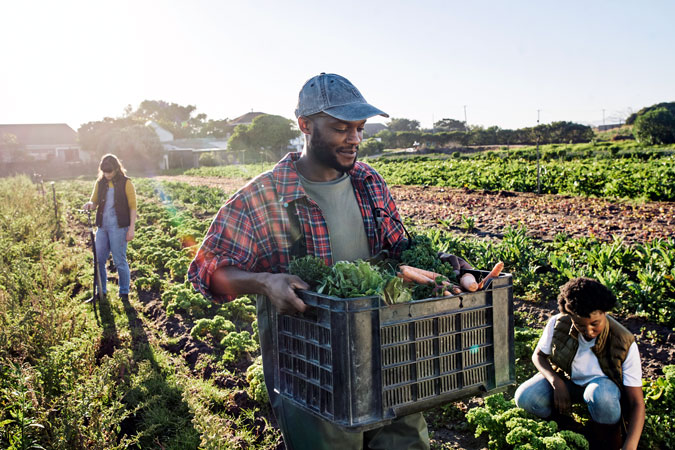 We believe that prevention must be prioritised and is the only sustainable way forward. We also need to better explain:
We believe that prevention must be prioritised and is the only sustainable way forward. We also need to better explain:
- The science around cancer risk and diets, weight, breastfeeding, physical activity, and alcohol – as summarised in our Cancer Prevention Recommendations.
- Which policies should be prioritised to shape healthier environments that minimise these cancer risks for populations.
- How cancer prevention policy can have positive cascading effects for our health, but also for our health systems, our societies and our shared natural environment.
Cancer prevention policies can have ripple effect
We also know that cancer prevention policies can touch on and improve other areas beyond health. For example, diets high in red and processed meat increase people’s risk of colorectal cancer, and that healthier diets made up of more wholegrains, fruit and vegetables can protect people from the same type of cancer. This is why our Cancer Prevention Recommendations say people should limit red and processed meat, and eat a diet rich in wholegrains, vegetables, fruit and beansAt the same time, if our food systems produced less red and processed meat, and animal- food in general, and instead moved towards producing plant-based foods, this would have a significant impact in lowering diet-related CO2 emissions. Policymakers need to make sense of these connections, and our guidance shows what they need to do to promote such positive cycles – or co-benefits.
Why we created the Blueprint
Our well-established Cancer Prevention Recommendations cover 10 ways in which individuals can minimise their risk of preventable cancers. A growing body of evidence is showing that adherence to these Recommendations is associated with lower risk of developing cancer and other NCDs, but also lower risk of dying from cancer.
However, the Recommendations have not – until now – been presented alongside population-level policy advice. We need to promote an integrated approach to preventing cancer, otherwise policymakers may risk formulating repetitive but disconnected policy strategies across these areas that do not speak to or build on each other. For example, marketing restrictions can be a useful tool to encourage healthy diets but are also relevant for promoting breastfeeding and limiting alcohol consumption. Even though the targeted products are different, there are lessons to be learned from policy efforts across different cancer risk factors.
By joining the dots in these different areas, we can create greater awareness of how different policy approaches can contribute to cancer prevention. Our new blueprint makes a compelling case for action, especially for prevention to be included in national cancer plans. The blueprint also reinforces the need for a whole-of-government approach that puts public health goals before commercial interests.
What’s inside the Blueprint?
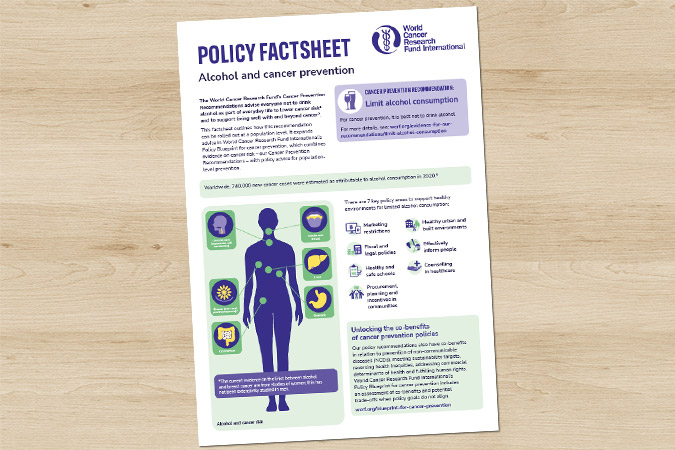
The Blueprint is accompanied by factsheets on specific cancer risk factors.
Our policy blueprint makes the case for population-level policy action and focuses on 5 factors: diet, weight, breastfeeding, physical activity and alcohol – in line with our Cancer Prevention Recommendations. We also look at how these factors can support people living with and beyond cancer
Our blueprint is an essential, evidence-based guide for policymakers and advocates, pulling together tools and resources to provide a comprehensive resource on cancer prevention. It pulls together existing tools and resources to support efforts on cancer prevention, including key guidance for World Health Organization, but also our existing NOURISHING nutrition and MOVING physical activity policy frameworks. All this information is distilled in a package of resources:
- An outline of 8 policy areas – including marketing restrictions, fiscal and legal, procurement, planning and incentives in communities– and how they apply to diet, weight, breastfeeding and physical activity.
- 10 factsheets with in-depth technical detail on how to roll out each Recommendation at population level.
- An exploration of the co-benefits of cancer prevention policy: addressing health inequities; meeting climate and sustainability targets; addressing commercial determinants of health; and fulfilling human rights.
- 7 strategies to help policymakers take action.
The goal of these resources is to strengthen understanding of how environment shapes cancer risk, and what policymakers can do about it.
How it was developed
To develop these resources, we built on our policy work, we reviewed existing key policy documents, and asked experts in the science and policy of cancer prevention, as well as lawyers, advocates for non-communicable disease prevention or breastfeeding what is most important in their respective areas. We then brought all the main elements together.
What’s next?
The Policy blueprint for cancer prevention will now be a centrepiece of our conversations with policymakers going forward – from Member States at the World Health Organization to the UN High-Level Meeting on Non-communicable diseases.
We invite you all to get involved: download the blueprint, share it, and use it in your work.
> Download our factsheets and other policy tools in our resource library
> To give us feedback and share how you want to use the blueprint, write to policy@wcrf.org
Eating a wide variety of food may reduce the risk of gastrointestinal cancers, according to research funded by the World Cancer Research Fund network* and published in the European Journal of Cancer.
Little is known about how eating a wide variety of food species, also known as food biodiversity, may benefit our health or affect our cancer risk. Food species refer to a distinct type of plant or animal, such as wheat, chicken, or salmon. For example, salmon, mackerel, and tuna are all separate food species, even though they share some biological traits and belong to the same food group. Similarly, rocket, lettuce and spinach count as separate food species, even though they are all leafy green vegetables. However, chicken and a chicken’s egg belong to the same food species even though they are different types of food.
This study is the first to examine how the number of different food types consumed, measured as Dietary Species Richness (the number of species an individual consumes per year) affects the risk of the following gastrointestinal cancers:
- Oesophagus
- Throat
- Stomach
- Bowel
- Colon
- Rectum
- Gallbladder
- Pancreas
- Liver
The study followed 450,111 cancer-free adults in 9 European countries from the European Prospective Investigation into Cancer and Nutrition cohort for 14 years. The researchers, from the International Agency for Research on Cancer, found that individuals with the most diverse diets, by including more food species in their diet, had a 23% lower risk of developing gastrointestinal cancers compared with those with the least variety. The risk decreased by 6% for every 10 extra species per year added to their diet. People can do this by including more variety in the types of fruit and vegetables they eat, for example, choosing to eat local and seasonal fruit and vegetables of different colours.
Food biodiversity includes eating different types of food that provide the necessary nutrients for maintaining health. Investigating food biodiversity is important because it has the potential to benefit public health and sustainable food systems.
Dr Helen Croker, our Assistant Director of Research and Policy, said: “Diets have become more limited in the types of foods eaten and they are often high in fat, sugar and salt. However, for cancer prevention, it’s important to eat a healthy, balanced and varied diet with plenty of wholegrains, pulses, vegetables and fruit.”
Dr Helen Croker
This study is particularly interesting because it looks at the number of different foods people eat and the impact it can have on their cancer risk, in particular gastrointestinal cancers. More research is now needed to confirm these findings and further explore the link between dietary diversity and cancer prevention.
Dr Inge Huybrechts
This study shows how a more diverse diet, including a large variety of species, could lower the risk of gastrointestinal cancers, emphasising the importance of eating a wide variety of foods. The idea behind a diverse diet consisting of many types of plants and animals species may provide essential nutrients for the body while also strengthening ecosystems, making them more resilient, productive, and sustainable.
This study was funded by Wereld Kanker Onderzoek Fonds based in the Netherlands, as part of the World Cancer Research Fund International network.

At World Cancer Research Fund, our mission is to live in a world where no one dies from a preventable cancer, so of course they’re all designed to help you live a healthier, happier cancer free life!
25 things for 2025
1. Drink more water!
The human body comprises around 60% water, so drinking enough water will help improve your physical performance and increase your energy levels.
2. Eat more beans, legumes and pulses
They’re a great source of protein, iron and fibre, they’re much cheaper than meat and good for the climate.
3. Move more!
Being physically active is important to live a healthy life and it’s one of our Cancer Prevention Recommendations.
There’s also strong evidence that being active protects against cancers of the colon, breast and endometrium.
4. Eat more fibre
We should consume at least 30g of fibre a day. Eating a healthy balanced diet that contains plenty of fibre-rich food helps to support your general health and it helps to reduce your risk of bowel cancer.
5. Drink less alcohol
We have strong evidence to show consuming alcoholic drinks is a cause of 7 types of cancer and that there is no “safe” level of alcohol. Why not try a new mocktail recipe instead?
6. Eat more fruit
Fruit is a vital part of a healthy and balanced diet. It contains a variety of important vitamins, minerals and natural chemicals that our body needs.
7. Check your body regularly
Get into the habit of performing regular self-checks at home. As soon as you see or experience something new or something unusual, see a doctor. Even if it’s nothing, getting checked earlier is always better.
8. Eat more vegetables
Just like fruit (No6), it’s important to eat a range of vegetables. We have some evidence that eating non-starchy vegetables helps protects against some cancers of the mouth and throat.
9. Drink fewer fizzy or sugar-sweetened drinks
There’s strong evidence that regularly having sugar-sweetened drinks lead to weight gain over time, which can increase the risk of 13 types of cancer.
Stick to water or other unsweetened drinks, such as tea and coffee.
10. Eat less processed meat
There is strong evidence that consuming processed meat is a cause of bowel cancer. Ideally, you should cut back on all the bacon, sausages, pork pies and ham that you eat.
Research in 2023 showed that 8,500 bowel cancer deaths per year could be prevented if people stop eating processed meat.
11. Eat less red meat
Just like with processed meat, there’s evidence that too much red meat increases your risk of bowel cancer. But we don’t suggest you completely cut out red meat – it’s a good source of nutrients such as protein, iron, zinc and vitamin B12 so can form part of a healthy, balanced diet.
Our Recommendation is to eat no more than 3 servings of red meat a week. Opt for white meat and fish instead, or go meat-free.
12. Get better sleep
Sleep is vital for a healthy life, so whether it’s ditching screens before bed or establishing a routine, better sleep will have many benefits.
13. Opt for more wholegrains
Wholegrains are the seeds of cereal plants, such as wheat, barley, quinoa, oats, rye, maize (corn) and rice.
There’s evidence that they can decrease the risk of bowel cancer, as well as being a rich source of copper, zinc and dietary fibre.
14. Sign up to Activ8
If you’re looking to get more healthy – whether that’s increasing your activity levels, maintaining a healthy weight or eating better, why not join our FREE 8-week interactive programme?
It will be sent straight to your inbox 📧
15. Eat less fast food
There’s strong evidence that diets containing high amounts of “fast food” and processed foods high in fat, starches and sugars are a cause of weight gain, overweight and obesity, which has been linked to cancers.
A study in 2023 linked ultra-processed food to an increased risk of mouth and throat cancers.
16. Wear SPF and protect yourself from the sun
Each year, around 332,000 people are diagnosed with skin cancer globally, but a high-factor suncream, the right clothing and avoiding the sun between 11am–3pm can help decrease your risk.
17. Try a new recipe
Not only is it fun to cook new dishes, but it also introduces you to new flavours and can get you out of a rut of always cooking the same thing.
We have more than 350 healthy recipes to try – many of which are budget friendly, so you don’t have to break the bank.
18. Eat more protein
Protein is important for us maintaining our health and plays a role in maintaining your muscles, repairing any injuries, keeping your weight down (it keeps you fuller for longer), and it provides energy.
You don’t even need to eat lots of red meat to keep your levels up – nuts, seeds, eggs, wholegrains and pulses are all good sources of protein.
19. Get outside more
Keeping active is important and taking a break from screens and connecting with nature is good for both our mental and physical health.
Plus, spending 15 minutes a day in the sunshine helps restore the body’s vitamin D levels.
20. Ditch the sunbeds
If you want to get a tan, faking it is much safer.
21. Walk an extra 10 minutes a day
Get off the bus/train a stop early, or leave the car at home and walk to the shops. Small things add up quickly and soon you’ll prefer two legs over four wheels.
22. Sign up to our monthly newsletter
Get regular updates on our cancer prevention work, the latest research, health tips, new recipes and much more…
23. Have a meat free day
Or, why not try Veganuary? We’ve already mentioned that limiting red and processed meat is important for cutting your cancer risk.
And a 2022 study showed that following a vegetarian diet could cut your risk of cancer by 14%, so why not explore meat-free recipes.
24. Try a new sport or activity
If you’re in a slump or feeling generally demotivated, why not try something new? And, if sport isn’t your thing, gardening or yoga could get you moving more.
Alternatively, why not join a local group, such as a choir or a craft meet-up. Not only will you be learning something new, but you become part of a community, which provides multiple health benefits.
25. Change one thing
If this list has made you feel overwhelmed, don’t feel as you have to do them all. Start by picking just one thing to do differently and then build up from there. Before you know it, you’ll be thriving!

Sign up to hear more from us
We’ll bring health advice and tips, tasty recipes, the latest cancer research and much more direct to your inbox.
